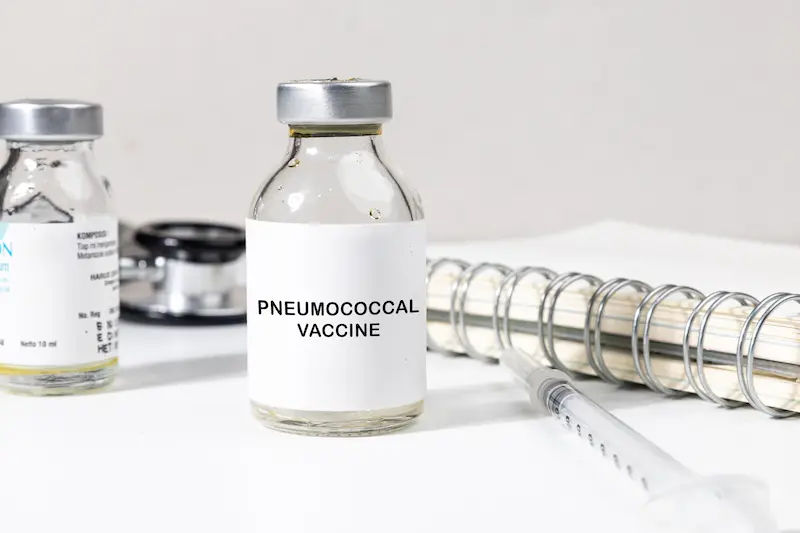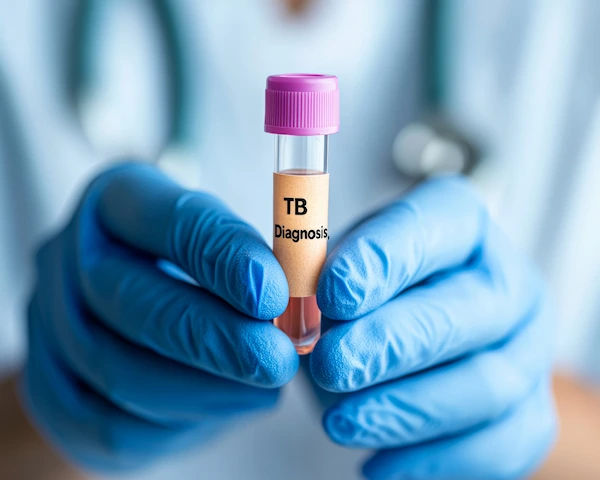Unlock the Secrets to a Healthy Mouth: Your Ultimate Guide
Know about the secrets of healthy mouth, diet and mouth connection, how to bresh it right way, tips to maintain oral health and mouth to body connection.


Introduction
A radiant smile is more than just a sign of confidence; it’s a window to your overall well-being. Yet, many of us settle for a basic brushing routine, unaware of the powerful, simple secrets that can transform our oral health. This guide goes beyond the toothpaste tube to reveal a holistic approach to achieving a truly healthy mouth. Whether you're looking to prevent cavities, reverse early gum inflammation, or simply ensure your breath is always fresh, these evidence-based strategies will empower you to take control. Get ready to discover how small, consistent changes can lead to a lifetime of strong teeth, healthy gums, and a brilliant smile.
The Foundation of Oral Health: More Than Just Brushing
While brushing is the cornerstone of any oral hygiene routine, it’s only one piece of the puzzle. A truly effective regimen is multi-faceted, targeting all areas of the mouth where harmful bacteria lurk. The goal isn’t just to clean the visible surfaces of your teeth but to disrupt the plaque biofilm a sticky, colorless film of bacteria that constantly forms—before it hardens into tartar, which can only be removed by a dental professional.
The Right Way to Brush: Technique Over Force
Many people believe that scrubbing their teeth vigorously leads to a cleaner mouth. In reality, this can damage enamel and irritate gums, leading to recession and sensitivity. The secret lies in technique. Use a soft-bristled toothbrush held at a 45-degree angle to your gums. Use gentle, short, circular or back-and-forth motions, ensuring you clean the outer, inner, and chewing surfaces of each tooth. Spend a full two minutes, twice daily. An electric toothbrush vs manual debate often arises; while a manual brush used correctly is sufficient, electric brushes with oscillating heads can be more effective at plaque removal for those who struggle with technique.
Consult a Dentist for Personalised Advice
The Flossing Imperative: Your Brush Can't Do It All
Your toothbrush bristles cannot reach the tight spaces between your teeth or under the gumline. This is where how to improve gum health naturally begins. Flossing is not optional; it’s essential for removing plaque and food particles from these critical areas. If you avoid flossing because it’s awkward or causes bleeding, don’t give up, Bleeding gums are often a sign of inflammation (gingivitis) caused by the very plaque you’re trying to remove. Consistent, gentle flossing will typically resolve the bleeding within a week or two. If bleeding persists, it’s a sign to seek professional advice.
Don't Forget Your Tongue: A Breeding Ground for Bacteria
Your tongue’s rough surface is a prime hiding spot for bacteria that contribute to plaque formation and bad breath. Gently brushing your tongue with your toothbrush or using a dedicated tongue scraper is a quick and effective way to remove this buildup and fight bad breath at its source. This simple 10-second step can make a significant difference in your overall oral freshness.
The Dietary Connection: You Are What You Eat (And Drink)
The foods and beverages you consume play a direct role in your oral environment. Every time you eat, you’re either feeding the harmful bacteria in your mouth or helping to fortify your teeth and gums.
The Sugar and Acid Double Threat
Sugary foods and drinks are the primary fuel for cavity-causing bacteria. These bacteria produce acids that attack tooth enamel, leading to decay. Similarly, highly acidic foods and drinks (like sodas, citrus juices, and sports drinks) can directly erode enamel, weakening teeth. The key isn’t necessarily complete elimination but management. Enjoy treats with meals rather than snacking throughout the day, which creates a constant acid bath in your mouth. Rinsing with water afterward can help neutralize acids.
Mouth-Healthy Foods to Embrace
Incorporate best foods for strong teeth into your diet. Crunchy fruits and vegetables (like apples, carrots, and celery) help clean teeth naturally and stimulate saliva flow. Dairy products like cheese and yogurt are rich in calcium and phosphates that strengthen enamel. Leafy greens provide calcium and folic acid, which promotes gum health. Green and black teas contain polyphenols that can suppress harmful bacteria.
The Power of Saliva: Your Mouth’s Natural Defender
Saliva is your mouth’s unsung hero. It constantly washes away food particles, neutralizes acids produced by bacteria, and provides disease-fighting substances throughout the mouth. A dry mouth (xerostomia) significantly increases the risk of decay and infection. Stay hydrated by drinking plenty of water throughout the day. Chewing sugar-free gum can also stimulate saliva production, offering protection after meals and snacks.
Habits That Harm: What to Avoid for Optimal Oral Health
Certain habits can undermine even the most diligent oral hygiene routine.
Tobacco Use: A Primary Culprit
Smoking or using smokeless tobacco stains teeth, contributes to gum disease by interfering with the normal function of gum tissue cells, and dramatically increases the risk of oral cancer. It’s one of the most significant risk factors for periodontitis.
The Dangers of Using Your Teeth as Tools
Your teeth are designed for chewing food. Using them to open bottles, tear packaging, or crack nuts can lead to chips, cracks, or even tooth fractures, requiring expensive dental work.
The Non-Negotiable: Regular Professional Dental Check-ups
No matter how thorough your at-home care is, professional cleanings and exams are essential. A hygienist can remove tartar buildup that you can’t, and a dentist can identify early symptoms of early gum disease or decay that are invisible to the untrained eye. Early detection is key to simple, less invasive, and more affordable treatment. If you notice persistent bleeding, pain, or sensitivity, consulting a dentist online with Apollo24|7 can provide initial guidance on your next steps.
The Mouth-Body Connection: Why Oral Health is Overall Health
The health of your mouth is intricately linked to the health of your entire body. Research has shown a strong association between periodontal disease and other serious conditions, including cardiovascular disease, diabetes, respiratory infections, and pregnancy complications. The theory is that inflammation in the mouth can increase systemic inflammation throughout the body, while oral bacteria can enter the bloodstream and affect other organs. Caring for your mouth is a powerful form of preventive dentistry for your whole body.
Conclusion
Achieving and maintaining a healthy mouth is a lifelong journey built on consistent, informed habits. The secrets revealed in this guide are not about complex rituals but about understanding the "why" behind the actions why technique matters more than force, why flossing is non-negotiable, and why your diet is a direct investment in your smile. By embracing a comprehensive approach that combines impeccable daily care, mindful nutrition, and regular professional oversight, you empower yourself to prevent problems before they start. This proactive stance is the true secret, saving you from discomfort, complex treatments, and safeguarding your overall health. If you have specific concerns about your oral health, booking a physical visit to a dentist with Apollo24|7 is a proactive step towards personalized care.
Consult a Dentist for Personalised Advice
Consult a Dentist for Personalised Advice

Dr Gaurav Jain
Oral and Maxillofacial Surgeon
21 Years • BDS, MDS
Delhi
Apollo Hospitals Indraprastha, Delhi

Dr. Chhavi Bajaj
Dentist
10 Years • BDS
Delhi
Dental Paradise, Delhi

Dr. Aritra Mandal
Dentist
6 Years • BDS, MDS (PERIODONTOLOGY)
Kolkata
COSMI DENTAL, Kolkata

Dr. Saurabh Gupta
Dentist
12 Years • BDS, MDS (oral & maxillofacial surgery)
Kolkata
Being Dentist, Kolkata

Dr. Vinodhini
Dentist
6 Years • BDS (Dental Surgeon)
Bangalore
Apollo Clinic Bellandur, Bangalore
Consult a Dentist for Personalised Advice

Dr Gaurav Jain
Oral and Maxillofacial Surgeon
21 Years • BDS, MDS
Delhi
Apollo Hospitals Indraprastha, Delhi

Dr. Chhavi Bajaj
Dentist
10 Years • BDS
Delhi
Dental Paradise, Delhi

Dr. Aritra Mandal
Dentist
6 Years • BDS, MDS (PERIODONTOLOGY)
Kolkata
COSMI DENTAL, Kolkata

Dr. Saurabh Gupta
Dentist
12 Years • BDS, MDS (oral & maxillofacial surgery)
Kolkata
Being Dentist, Kolkata

Dr. Vinodhini
Dentist
6 Years • BDS (Dental Surgeon)
Bangalore
Apollo Clinic Bellandur, Bangalore
More articles from General Medical Consultation
Frequently Asked Questions
How can I tell if I have early signs of gum disease?
Early gum disease (gingivitis) often manifests as red, swollen, or tender gums that may bleed easily when you brush or floss. You might also notice persistent bad breath. If caught early, gingivitis is reversible with improved oral hygiene.
Is an electric toothbrush really better than a manual one?
Studies show that for many people, electric toothbrushes with oscillating-rotating heads can be slightly more effective at reducing plaque and gingivitis. However, a manual brush used with proper technique for the recommended two minutes is also highly effective. The best brush is the one you will use consistently and correctly.
What are some natural ways to fight bad breath?
Beyond proper brushing and flossing, staying hydrated, cleaning your tongue, and eating crunchy, water-rich vegetables can help. Parsley, green tea, and yogurt have also been shown to have deodorizing effects. Persistent bad breath, however, can be a sign of an underlying issue and should be evaluated by a dentist.
How does stress affect my oral health?
High stress can lead to teeth grinding (bruxism), which wears down enamel and can cause jaw pain. Stress can also weaken your immune system, making it harder for your body to fight off infections, including those that lead to gum disease. It can also cause dry mouth and lead to neglect of oral hygiene routines.
I have a phobia of the dentist. What can I do?
Dental anxiety is very common. Talk to your dentist about your fears. Many practices specialize in treating anxious patients and offer solutions like sedation dentistry, calming environments, and clear communication to ensure you are comfortable throughout the procedure.




